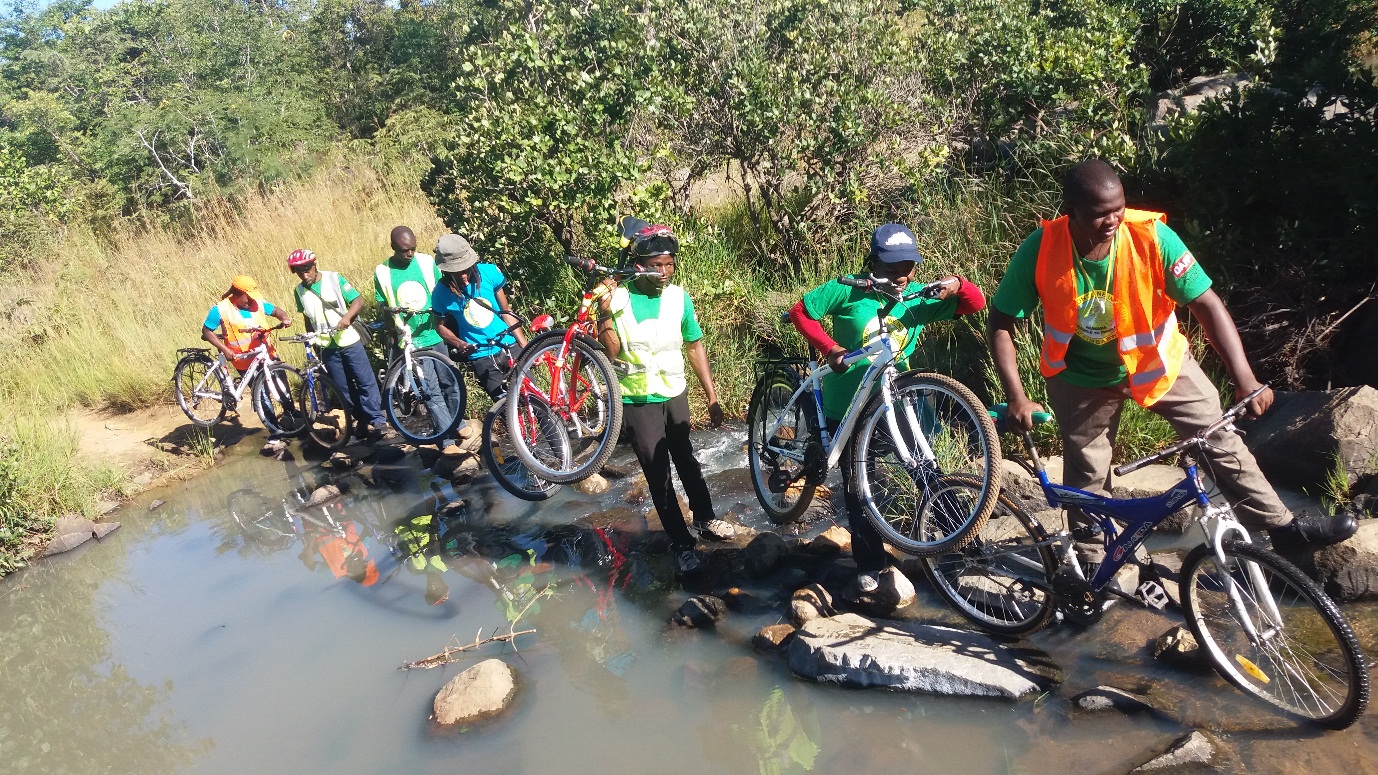Frontline Institute
Frontline Institute is a training institute of Development Aid from People to People in Zimbabwe. Frontine Institute was established in 1993, and it trains key staff for the Humana People to People Federation to be in the frontline of development and fight against dehumanizing phenomena such as poverty, illiteracy and diseases. 85% of the students are youth, and they are trained to become global activists and citizens. The students are mainly chosen among employees in the Humana People to People projects, who show commitment to development. Students come from Southern, Central and West Africa, Asia and Latin America. Since 1993, more than 6, 000 students have graduated from Frontline.
Humanity faces major global challenges which include extreme poverty, diseases andfood insecurity. However, we believe that problems created by humans can be solved by humanity through working together to respond to these interconnected threats and restore human dignity. Frontline Institute Humanity faces major global challenges which include extreme poverty, diseases and food insecurity. However, we believe that problems created by humans can be solved by humanity through working together to respond to these interconnected threats and restore human dignity.
Frontline Institute uses broad, inclusive and innovative ways of training key staff of Humana People to People to be at the Frontline of development. The participants who come from Humana People to People projects around the world are trained to understand communities, situations, challenges, and opportunities to work together as a global family to achieve common goals. In 2025, Frontline Institute is offering three courses, Our Humana People to People World, Our Open Future Together, and Humana People to People Leadership short courses.
The school currently has an enrolment of 187 students from 11 different countries gained hands-on training in project management from planning, organizing, leading, decision-making, motivation and controlling. The project management course also enables the students to learn how to generate income through actively running the Income Generating Activities in the school. They learn about entrepreneurship thus learning important skills they would use in their respective communities in particular community development.
The Institution also focuses on the Long-distance trick cycling which serves as a crucial training method, drawing participants nearer to the urgent challenges facing humanity. The students and teachers travell in an organised manner for a period of 2 months, using investigative pedagogy as the main method of learning. Students adapt and address real life issues through action research, group work, practical activities and opinion sharing together with the communities .in Zimbabwe, Malawi, Botswana, Zambia, and Mozambique.

Its History
In 1983 interviews with a number of Frontline State presidents pointed to the need for training of people, who would work together to create development across borders and cultures and with the understanding of the necessity to create a new image of Africa – an image of unity, peace and progress.
This led to the formation of Frontline Institute, first as a training centre for Europeans and Africans in Denmark, and in 1991 Frontline Institute in Zimbabwe was started up. The students at Frontline Institute have all been active in development projects and have experienced what it takes to create development.
They know the conditions that people are facing in the everyday in the cities and in the rural areas of Africa and India. Most of them have been living in the same communities and have been part of the everyday struggle to deal with conflicts and poverty and to make things go forward. They learn to be driving forces in the development and be cornerstones that people can rely on. The students are trained to create changes and to understand the process that it takes to make the changes come about. The students are trained to work in the field together with the people, who are living there and working for betterment.
They are trained to create partnerships with all the people, who are concerned with development, from clinics and hospital, educational institutions, Government offices, and international organizations in order to make use of all forces and make things happen.
